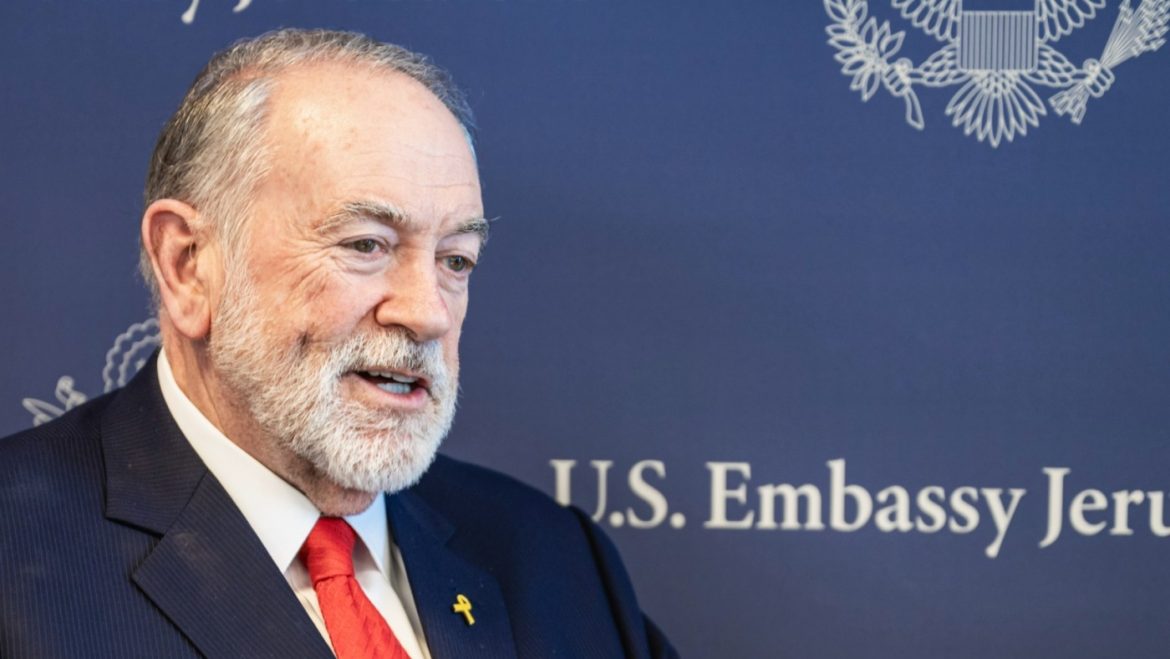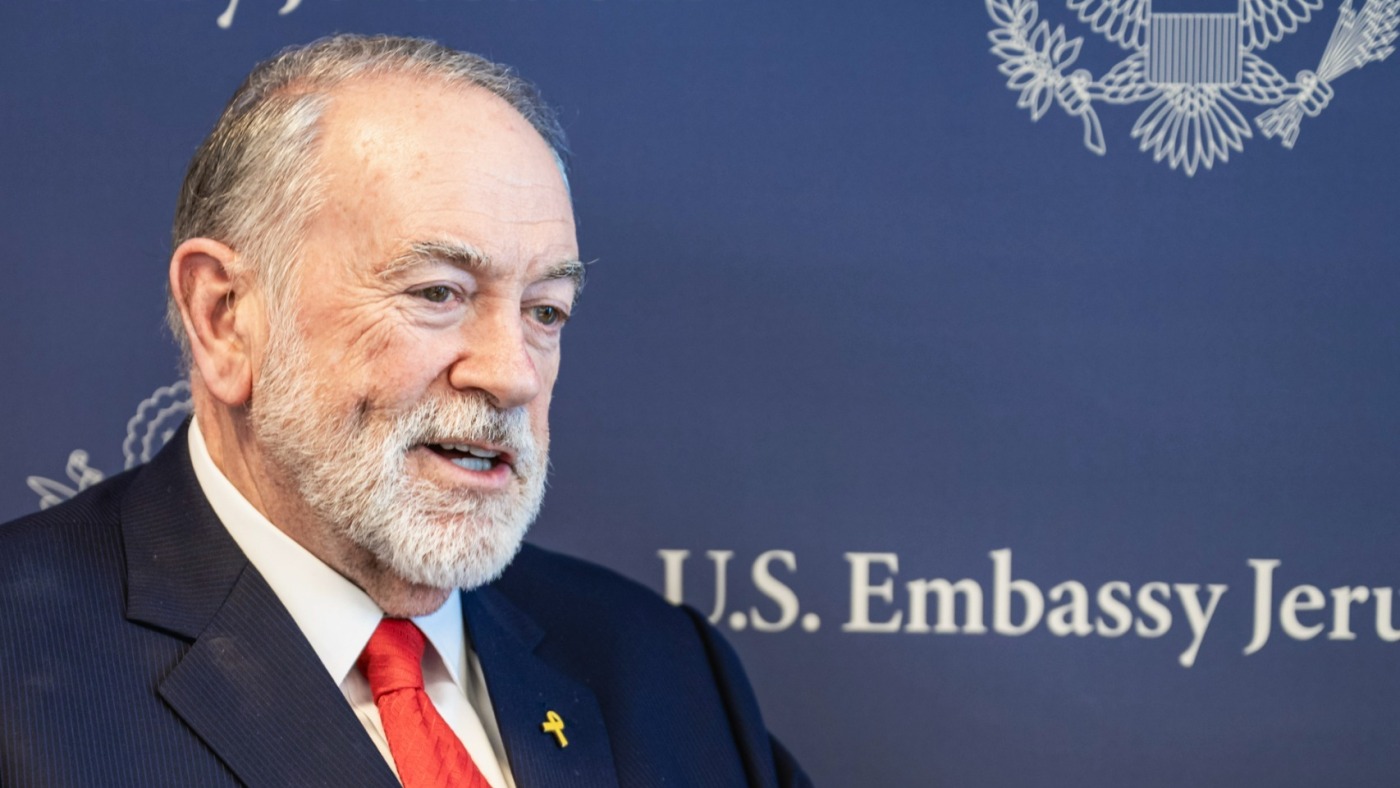U.S. Ambassador Mike Huckabee’s Outrage at European Leaders: An In-Depth Analysis
Introduction: Contextualizing the Diplomatic Controversy
The appointment of Mike Huckabee as U.S. Ambassador to Israel has ignited significant debate given his outspoken views on the Israel-Palestine conflict. Recently, Huckabee expressed strong outrage toward European leaders from the U.K., Canada, and France for their condemnation of Israel’s military actions in Gaza. This reaction reflects broader tensions among international actors regarding responsibility and accountability in the long-standing Middle East conflict. Huckabee’s stance, statements, and resulting diplomatic friction provide an instructive case study on political rhetoric, foreign diplomacy, and the intricate balance of narrative in a volatile region.
Huckabee’s Core Arguments and Position
Huckabee vocally criticized European condemnation of Israel, asserting they are “blaming the wrong perpetrator,” identifying Hamas as the primary responsible party for the suffering in Gaza. His comments, made during an interview with NPR and reiterated in multiple public forums, emphasize a clear narrative: Hamas’s actions, not Israel’s military operations, are the root cause of the conflict’s casualties and humanitarian crisis.
This perspective aligns closely with a staunchly pro-Israel stance, carried through Huckabee’s political and religious convictions. He has declared himself an “unapologetic, unreformed Zionist” and frequently voiced skepticism about Palestinian territorial claims—as notably controversial as denying the existence of a “West Bank” in geographical-political context. Huckabee’s history includes labeling images and actions by Hamas as “horrific” and openly condemning Palestinian militant groups while strongly supporting Israeli military responses.
Diplomatic Fallout: European Powers vs. U.S. Representation
Huckabee’s outright frustration at European leaders exposes a diplomatic rift. The U.K., France, and Canada have publicly criticized Israel’s military offensive as exacerbating civilian suffering, pushing back against blanket pro-Israel narratives. They implicate Israeli policy decisions and military tactics in ongoing humanitarian issues within Gaza.
Huckabee’s rebuke, labeling their viewpoint as misguided, signals a hardened U.S. diplomatic posture under his ambassadorship. It also reflects broader geopolitical cleavages—Europe’s comparatively critical stance on Israel versus the Trump administration’s consistently pro-Israel policies. These evolving alignments complicate traditional alliances and international cooperation on peace efforts, humanitarian aid, and conflict resolution mechanisms in the Middle East.
Controversies Surrounding Huckabee’s Nomination
Huckabee’s nomination prompted considerable backlash from Democrats, human rights advocates, and some religious groups who warn his past statements threaten to inflame an already volatile situation. Critics argue that his inflammatory rhetoric and ideological rigidity risk undermining U.S. diplomatic neutrality necessary for facilitating peace.
Moreover, protests erupted during his Senate confirmation hearing, reflecting unease among segments of the American public and political spectrum. Opponents cite his denial of Palestinian territorial legitimacy and potential bias as obstacles to balanced diplomacy.
Despite this, Huckabee was confirmed by the Senate, signaling strong congressional support for reinforcing a pro-Israel agenda. This endorsement highlights the close alignment between the Trump administration’s foreign policy priorities and conservative pro-Israel factions within the U.S. government.
Strategic Implications for U.S.-Middle East Relations
Huckabee’s outspoken approach may harden Israel’s alliance with the U.S. but risks alienating moderate Arab states and international partners seeking more balanced U.S. mediation. His framing of the conflict simplifies a deeply complex and protracted struggle, potentially limiting American diplomatic agility.
Additionally, Huckabee’s dismissiveness of Palestinian national claims and skepticism of European critiques could complicate U.S. efforts to broker humanitarian aid and negotiate ceasefires. His recent assertions claiming U.S. authorship of aid plans for Gaza, even as humanitarian conditions deteriorate, underscore a messaging strategy focused on U.S.-Israel partnership over regional reconciliation.
Broader Reflections on Political Identity and Diplomacy
Huckabee embodies a fusion of evangelical Christian ideology and hardline Zionism, influencing his diplomatic conduct. His identity politics reverberate through U.S. representation in Israel, shaping foreign policy through a distinctly partisan lens. This approach contrasts sharply with traditional diplomatic norms rooted in neutrality and consensus-building.
The controversy surrounding his ambassadorship illustrates how individual political figures can reshape international relations and public perceptions of a complex conflict. It raises fundamental questions about the role of personal belief, political ideology, and historical narrative in diplomatic appointments.
Conclusion: Navigating the Diplomatic Crossroads with Huckabee’s Appointment
Mike Huckabee’s expression of outrage against European leaders symbolizes a pivotal moment in U.S.-Israel relations and global discourse on the Gaza conflict. His uncompromising stance spotlights the divisive nature of political narratives and their impact on diplomacy.
While his fervent support for Israel solidifies certain alliances, it also brings challenges—particularly in balancing voices of criticism and humanitarian concern. Navigating this diplomatic crossroads will require careful management to avoid deepening international rifts or sidelining prospects for peace in one of the world’s most enduring conflicts.
Huckabee’s tenure will likely be defined by his ability to reconcile his ideological convictions with the pragmatic demands of international diplomacy—or by the broader consequences of failing to do so.


